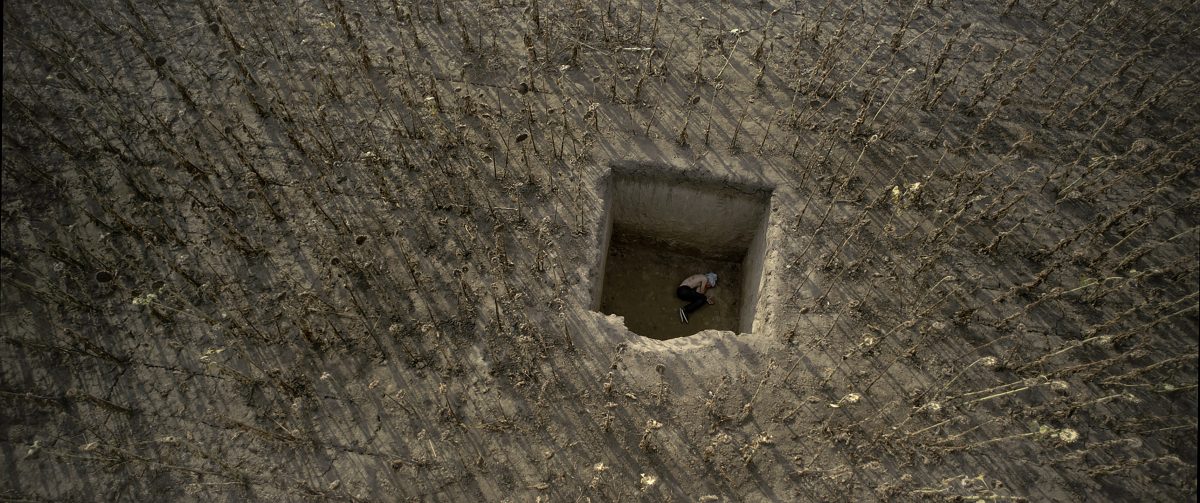




Dir: Roman Bondarchuk | Writer: Dar’ya Averchenko, Alla Tyutyunnyk | Cast: Serhiy Stepansky, Viktor Zhdanov | Comedy Drama | 106′
Roman Bondarchuk honed his craft during the Maidan uprising as co-director of the documentary Euromaidan followed by Ukrainian Sheriffs his tragicomic look at lawless village life. His feature debut is a visually alluring, darkly sarcastic, wildly nostalgic portrait of quiet desperation set in a surreal backwater.
In one of the most impressively-crafted opening sequences of this year, Lukas (Stepansky) an OSCE interpreter from Kiev, disembarks from a ferry in a car escorting four delegates that promptly breaks down on the road to a conference in the city of Beryslaw (Kherson). With no mobile signal, he stumbles off despondently looking for help in what seems like a forgotten Ukraine, abandoned after the collapse of the Soviet Union, of which it had been a part. The only sign of modern life is a dam that provided electricity but at a human cost in flooding local villages – to whose memory the feature is dedicated.
Lukas soon finds himself in a dusty smallholding where he meets Vova (Zhadanov), an ageing veteran of the Soviet system, and once was the director of a fishing collective. “After 1989”, he complains to Lukas, “they grabbed everything and paid me off with glue, and there’s no market for it”. Vova sees Lukas as his ticket out of the daily misery. But the two women in his household are dead against him leaving: his possessive mother (Sotsenko), who drove away Vova’s wife accusing her of infidelity, and an attractive daughter Marushka (Deilyk), who is keen for to him stay, for other reasons. Desperate to break away from this timewarp, Lukas’ existential angst takes over and after losing his belongings at a raucous party, he is beaten up by two soldiers, waking up in a deep manmade hole in the ground, from which there is no escape. After Vova rescues him, Lukas will have to make a choice.
VOLCANO is clearly a metaphor for the current status quo and the contradictions of modern Ukraine echo all around: “Weren’t you a hero of Maidan?”, Lukas demands to know from Vova. The answer is, of course “yes’, but the reality of everyday life in this war-torn country is anything but heroic: this is a society stuck in the dark ages of the early 20th century – despite mobile ‘phones. Wages are so low that hardly anyone bothers to work, living on bribes and petty crime. While hating the Russians for stealing their country, they ambiguously hark back to a time of order and stability, paid for by repression.
DoP Vadim Ilkov catches this nostalgia evocatively on the widescreen, and the under-water shots of the flooded villages are particularly impressive. Bondarchuk directs with great sensibility, never denouncing his protagonists, who are seen as children asked to play adults in a world whose rules they do no understand any more. The director tells the slow-burning story of loss and self-determination: the traditions that once made them proud are distant memories as they cling on to the void between a past and a present they fear, not to mention a future of more uncertainty. Moving and passionate. MT
ON RELEASE FROM 10 November 2021 | PREMIERED AT KARLOVY VARY 2018